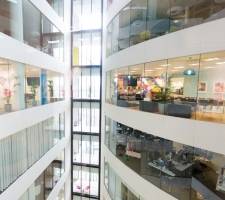January 6, 2015
Government should accept that self employment is the new normal for many
 The Government should develop more policies that meet the needs of the growing numbers of self-employed in the UK and across Europe. That is the message of a new report from think tank The Institute for Public Policy Research which points out that while 40 percent of the rise in job levels since 2010 has been in self-employment, the Government should accept this is not a blip but a structural change in the way many people work and develop appropriate policies to meet their needs. The report argues that self-employment is already the new normal for some 4 million UK workers and the Government should take steps to ensure their pensions, training and earnings are in step with the rest of the workforce.
The Government should develop more policies that meet the needs of the growing numbers of self-employed in the UK and across Europe. That is the message of a new report from think tank The Institute for Public Policy Research which points out that while 40 percent of the rise in job levels since 2010 has been in self-employment, the Government should accept this is not a blip but a structural change in the way many people work and develop appropriate policies to meet their needs. The report argues that self-employment is already the new normal for some 4 million UK workers and the Government should take steps to ensure their pensions, training and earnings are in step with the rest of the workforce.






 The UK labour market will continue to expand at a strong rate in 2015 but there are unresolved issues relating to levels of pay and how best to increase workplace productivity to drive further growth, according to Mark Beatson, chief economist for the Chartered Institute of Personnel and Development (CIPD) in
The UK labour market will continue to expand at a strong rate in 2015 but there are unresolved issues relating to levels of pay and how best to increase workplace productivity to drive further growth, according to Mark Beatson, chief economist for the Chartered Institute of Personnel and Development (CIPD) in 

















December 17, 2014
Flexible working is best built on the foundations of a great office
by Charles Marks • Comment, Flexible working, Workplace design
More →